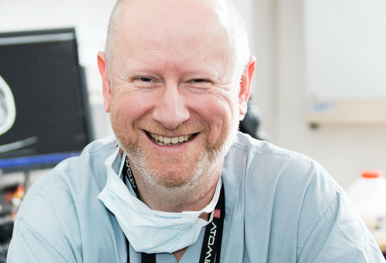Home / Support the children / Meet CHI’s Frontline Heroes / John Caird, Paediatric Neurosurgeon
Meet John Caird, Paediatric Neurosurgeon, CHI at Temple Street
My name is John Caird and I’m one of the Paediatric Neurosurgeons here in CHI at Temple Street. Here in CHI at Temple Street, we are the national centre for paediatric neurosurgery. We receive referrals from all over the country and it’s a great pleasure and privilege to be involved in their care. Along with the other neurosurgeons here at CHI at Tempe Street, I work as part of team including nurse specialists, advance nurse practitioners and administrative staff to provide the best possible neurosurgical services for young patients from across the country.
Each week, we have our inpatient patients, for example those who may have a brain tumor and conditions of that nature who would receive care on St. Gabriel’s ward. We also have patients in our ICU as well as our neonatal ward in St. Michael’s B. We also have a very large cohort of outpatient patients and work cross-site with our colleagues in CHI at Crumlin. Every week we have a multidisciplinary meeting where we discuss our oncology patients, patients who are receiving treatments such as chemotherapy and radiotherapy in CHI at Crumlin but also need specialized surgery to remove a tumor.

The neurosurgery team is also involved in other multidisciplinary teams including the craniofacial service and spina bifida clinics here at CHI at Temple Street as well as working closely with our colleagues in ICU and anesthesiology and other specialist clinics for rarer conditions.
Although we’re not scheduled to, we often carry out surgery five or six days a week due to the high demand. Our colleagues in the theatre department are always so flexible and accommodating to allow us to get through our case load.
I’m involved with patients who have brain tumors as well as patients with hydrocephalus, which is a buildup of fluid in the cavities deep within the brain. As well as treating patients here at CHI at Temple Street, I also work in Beaumont Hospital where we have a young adult clinic. This allows patients who I have treated since a young age to stay under my care as they graduate out of the paediatric service, this continuity of care is often a comfort to the patient and their family. Their care doesn’t end when they turn 16 and we are always aware of that and want to make the transition as stress free as possible.
I vividly recall not long after I started here in 2008, rugby player Brian O’Driscoll came to present the new neuronavigational equipment and an operating microscope that was all paid for through fundraising through the then Temple Street Foundation.
In the operating room, much of our expensive equipment in the theatre such as microscopes and navigational equipment has been funded directly by fundraising. We also have a lot of equipment on the wards including intracranial pressure monitors that have also been paid for through fundraising. In our day-to-day work, it makes a huge difference to have these option open to us as we would be years behind if we had to wait for HSE funding.
There have been many, many times that I’ve seen parents show bravery for their child. When you’re treating patients with these types of conditions, you’re on one side of the counter. We do our job and then we get to go home. They don’t get to go home or get away from this. If their child has a very serious or life-threatening illness, that’s 24/7 for them. We try to make their experience as manageable, seamless, and caring as possible. It can be very difficult having an ill child, from family life, economically, parents need to take time off work, and all of the travelling. All the things that cause upset in our daily lives still happen when you have a sick child, yet they preserver and stay brave for the sake of their family.

